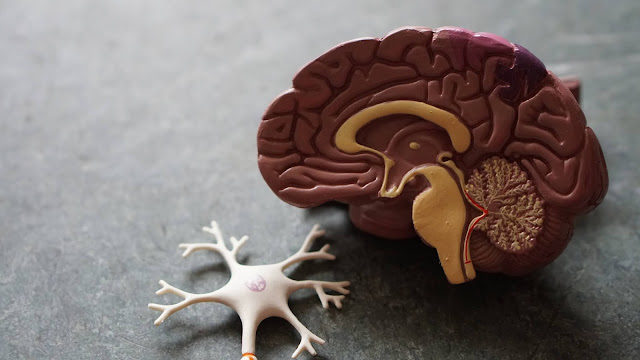In the field of psychology, there are specialized branches that focus on the complex relationship between the brain, behavior, and mental processes. Two such branches are Neuropsychology and Biopsychology. These disciplines delve into understanding how biological factors influence our thoughts, feelings, and actions. In this in-depth guide, we will explore the fundamentals of Neuropsychology and Biopsychology, highlighting their significance in unraveling the mysteries of the human mind.
Exploring Neuropsychology
1.What is Neuropsychology?
Neuropsychology is a branch of psychology that studies the structure and function of the brain, particularly how it relates to cognitive processes and behaviors. This field seeks to understand the intricate connections between brain activity and behavior, focusing on how brain injuries, diseases, or abnormalities can impact cognitive functions.
2. The Role of a Neuropsychologist
A neuropsychologist is a professional who assesses, diagnoses, and treats individuals with brain injuries or neurological conditions. By conducting various assessments, such as neuropsychological testing, they can identify cognitive strengths and weaknesses, providing valuable insights into an individual's cognitive functioning.
3. Applications of Neuropsychology
Neuropsychology plays a crucial role in various settings, including:
Clinical Practice: Neuropsychologists work in clinical settings to assess and treat individuals with traumatic brain injuries, dementia, strokes, and other neurological conditions.
Research: Through research studies and experiments, neuropsychologists contribute to expanding our knowledge of brain-behavior relationships, paving the way for advancements in the field of neuroscience.
Rehabilitation: Neuropsychologists assist in developing rehabilitation programs tailored to the individual's cognitive deficits, helping them regain lost skills and improve their quality of life.
Unveiling Biopsychology
1. Understanding Biopsychology
Biopsychology, also known as behavioral neuroscience, is a branch of psychology that examines how biological factors influence behavior and mental processes. This field explores the intricate interplay between the brain, neurotransmitters, hormones, genetics, and behavior, shedding light on the biological underpinnings of psychological phenomena.
2. The Role of a Biopsychologist
A biopsychologist is a researcher or practitioner who investigates the biological mechanisms that underlie behavior and mental processes. By employing various research methods, such as brain imaging and genetic studies, biopsychologists strive to uncover the biological foundations of psychological functions.
3. Applications of Biopsychology
Biopsychology has diverse applications in different domains, including:
Psychiatric Disorders: By studying the biological origins of mental illnesses like depression, schizophrenia, and anxiety disorders, biopsychologists contribute to the development of more effective treatments and interventions.
Addiction Studies: Biopsychologists explore how substance abuse affects the brain's reward system and neurotransmitter pathways, offering insights into addiction mechanisms and potential therapeutic approaches.
Neurological Disorders: Biopsychology research plays a crucial role in understanding and treating neurological conditions such as epilepsy, Parkinson's disease, and Alzheimer's disease, paving the way for innovative treatment strategies.
The Intersection of Neuropsychology and Biopsychology
While Neuropsychology and Biopsychology are distinct branches of psychology, they share a common goal of unraveling the complex relationship between biology and behavior. The intersection of these fields offers a comprehensive understanding of how brain structure and function influence psychological processes, leading to valuable insights in clinical practice, research, and rehabilitation.
Key Similarities:
Both disciplines focus on the biological underpinnings of behavior and cognitive processes.
They utilize advanced research methodologies to explore brain-behavior relationships.
Both Neuropsychology and Biopsychology contribute to advancements in neuroscience and mental health treatment.
Key Differences:
Neuropsychology primarily focuses on the assessment and rehabilitation of individuals with brain injuries or neurological conditions.
Biopsychology examines broader aspects of behavior and mental processes influenced by biological factors, such as genetics and neurotransmitters.
Conclusion
In conclusion, Neuropsychology and Biopsychology are invaluable branches of psychology that illuminate the intricate connections between the brain and behavior. By delving into the biological foundations of cognitive functions, these disciplines offer profound insights into the complexities of human nature. Whether in clinical practice, research, or rehabilitation, Neuropsychology and Biopsychology continue to shape our understanding of the mind-brain relationship, paving the way for transformative advancements in psychology and neuroscience.
By embracing the interdisciplinary nature of these fields, researchers and practitioners can unlock new frontiers in mental health treatment, cognitive enhancement, and neurological rehabilitation. The fusion of Neuropsychology and Biopsychology embodies the synergy between biology and psychology, bridging the gap between the biological mechanisms of the brain and the complexities of human behavior.











0 Comments